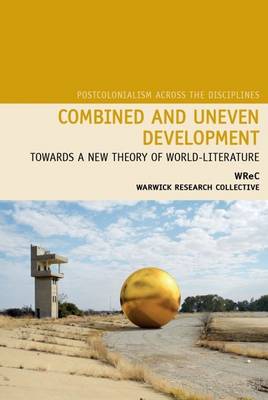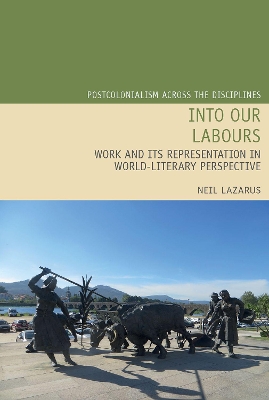Postcolonialism Across the Disciplines
1 primary work • 2 total works
Book 17
Combined and Uneven Development
by Sharae Deckard, Nicholas Lawrence, Neil Lazarus, Graeme Macdonald, Upamanyu Pablo Mukherjee, Benita Parry, and Stephen Shapiro
Published 25 June 2015
The ambition of this book is to resituate the problem of 'world literature', considered as a revived category of theoretical enquiry, by pursuing the literary-cultural implications of the theory of combined and uneven development. This theory has a long pedigree in the social sciences, where it continues to stimulate debate. But its implications for cultural analysis have received less attention, even though the theory might be said to draw attention to a central - perhaps the central - arc or trajectory of modern(ist) production in literature and the other arts worldwide. It is in the conjuncture of combined and uneven development, on the one hand, and the recently interrogated and expanded categories of 'world literature' and 'modernism', on the other, that this book looks for its specific contours. In the two theoretical chapters that frame the book, the authors argue for a single, but radically uneven world-system; a singular modernity, combined and uneven; and a literature that variously registers this combined unevenness in both its form and content to reveal itself as, properly speaking, world-literature. In the four substantive chapters that then follow, the authors explore a selection of modern-era fictions in which the potential of their method of comparativism seems to be most dramatically highlighted. They treat the novel paradigmatically, not exemplarily, as a literary form in which combined and uneven development is manifested with particular salience, due in no small part to its fundamental association with the rise of capitalism and its status in peripheral and semi-peripheral societies as a 'modernising' import. The peculiar plasticity and hybridity of the novel form enables it to incorporate not only multiple literary levels, genres and modes, but also other non-literary and archaic cultural forms - so that, for example, realist elements might be mixed with more experimental modes of narration, or older literary devices might be reactivated in juxtaposition with more contemporary frames.
Into our Labours explores the literary representation of work across the globe since 1850, setting out to show that the literature of modernity is best understood in the light of the worlding of capitalism. The book proposes that a determinative relation exists between changing modes of work and changes in the forms, genres, and aesthetic strategies of the writing that bears witness to them. Two aspects of the 'worlding' of modernity, especially, are emphasised. First, an 'inaugural' experience of capitalist social relations, whose literary registration sometimes makes itself known through a crisis of representation, as the forms of space- and time-consciousness demanded by life in contexts in which market-oriented commodity production has become the dominant form of social labour are counterposed with inherited ways of seeing and knowing, now under acute pressure if not already obsolete. Second, a moment corresponding to the consolidation, regularisation and global dispersal of capitalist development. Into Our Labours focuses on the naturalisation of capitalist social relations: forms of sociality and solidarity, ideologies of familialism, individualism and work, relations between the sexes and the generations. Arguing that the only plausible term for the vast body of literary work engendered by the worlding of capitalist social relations is 'modernist', the book proposes that it is then important to challenge the still-entrenched Eurocentric understandings of modernism. Modernism is neither originally nor paradigmatically 'Western' in provenance; and its temporal parameters are much broader than are usually assumed in modernist studies, extending both backward and forward in time.

